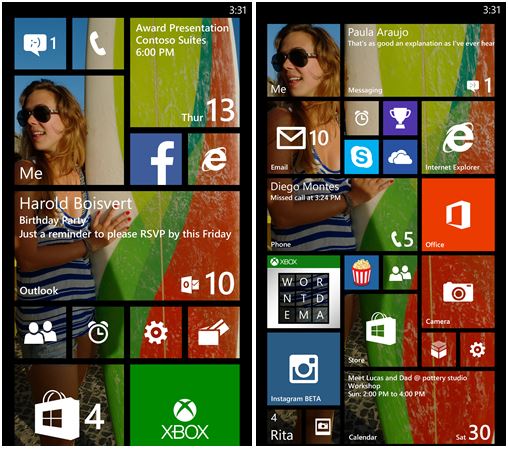One of the highlights at Build developer conference last week was Cortana, Microsoft’s Bing-powered answer to Apple’s Siri and Google Now for Windows Phone 8.1.
Despite a few glitches, Cortana – named after the holographic AI character in the popular “Halo” video game series – was a crowd-pleaser during a 2 April keynote session at the developer conference in San Francisco. Generally speaking, Cortana deftly handled queries, scheduled app-related tasks and applied machine-learning technology to deliver in-context suggestions.

Machine learning
Cortana’s answers and suggestions get better as it grows more familiar with the user, courtesy of Microsoft’s search platform. “Powered by Bing, Cortana is the only digital assistant that gets to know you, builds a relationship that you can trust, and gets better over time by asking questions based on your behaviour and checking in with you before she assumes you’re interested in something,” said Microsoft corporate vice president Joe Belfiore in a company blog post.
Bing and technologies based on it have evolved from browser-based search and results pages, suggested Belfiore. Cortana, for instance, “detects and monitors the stuff you care about, looks out for you throughout the day, and helps filter out the noise so you can focus on what matters to you”.
While Cortana stole the show, Microsoft showed off other Bing innovations at Build. Among them was App Linking, a feature that can launch app-based actions based on Bing search results. In an example provided by Stefan Weitz, senior director of Bing, a search for the “Titanfall Xbox Bundle” generates a link to the Amazon app among the results. When pressed or clicked, the link takes users to the product listing within the Amazon app.
As a potential benefit for Windows developers, App Linking “makes Windows and Windows Phone apps more discoverable and enables consumers to get to the relevant page or take action in your app with a single click”, Weitz said in a statement.
Microsoft also showed off its Bing Knowledge Widget. Available now (in beta), the widget “is a lightweight, easy-to-use JavaScript module that enhances any website or blog with the power of the Bing knowledge engine”.
Developer tools
By inserting “a single line of code”, webmasters can imbue their sites with supplemental content. Weitz explained that the technology “automatically detects and visualises the entities within the content and delights visitors with rich information about the entity (and its related entities) within the context of the page and with a single tap or click”.
The widget could help website operators boost their audience-building efforts and entice visitors to stick around longer, said Weitz. “This allows publishers to increase user engagement and time spent on site.”
Weitz hinted that Microsoft has more developer-friendly Bing capabilities in store. They can “expect additional capabilities to roll out to help you create experiences that are more personalised, more contextually aware, and more proactive”, he stated.
Do you know all about the Internet of Things? Take our quiz.
Originally published on eWeek.





